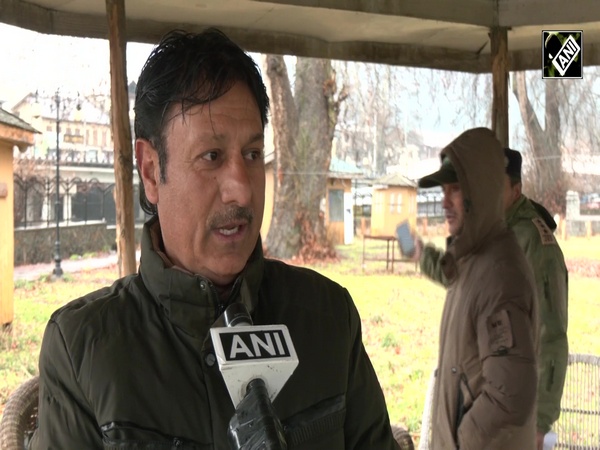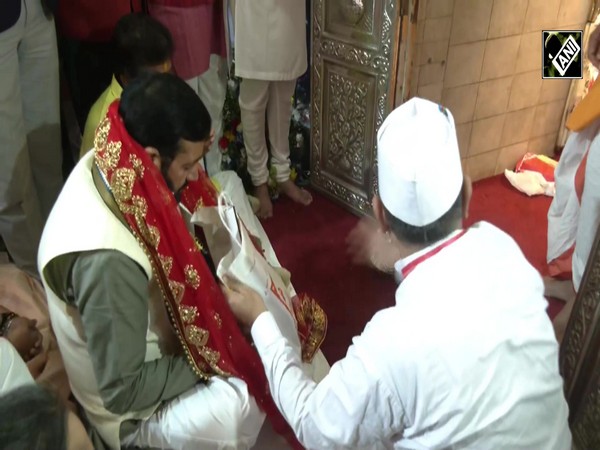SC agrees to remove "foreign origin" remark for Sikkimese of Nepalese origin from its judgement
Feb 08, 2023

New Delhi [India], February 8 : The Supreme Court on Wednesday agreed to remove the remark describing Sikkimese of Nepalese origin as people of "foreign origin" from its judgment in 'Association of Old Settlers of Sikkim vs Union of India.'
A bench of justices MR Shah and BV Nagarathna modified its January 13 judgement.
The applications were filed seeking the removal of the foreigner tag from Sikkimese of Nepalese origin from the order dated January 13. Senior Advocate Sanjay Hegde along with Advocate on record Anas Tanwir appeared for petitioners Bharat Basnett and RB Subba.
The Ministry of Home Affairs (MHA) on Monday also filed a petition in Supreme Court for rectification of the court's observation on Sikkimese Nepalis.
The Home Ministry made the declaration through a series of tweets.
"Ministry of Home Affairs (MHA) files review petition in Supreme Court against some of the observations and directions in a recent judgement dated January 13 2023, in two petitions of 2013 and 2021 filed by Association of Old Settlers of Sikkim and Ors in Supreme Court," it said in a tweet.
"The Government of India reiterated its position about the sanctity of Article 371F of the Constitution that safeguards the Sikkimese identity, which should not be diluted," mentions another tweet.
The SC in its January 13 Judgement, said, "The exclusion of Old Indian settlers, who have permanently settled in Sikkim prior to the merger of Sikkim with India on April 26, 1975, from the definition of "Sikkimese" in Section 10(26AAA) is hereby held to be ultra vires to Article 14 of the Constitution of India and is hereby struck down. It is held that all Indians/old Indian settlers, who have permanently settled in Sikkim prior to the merger of Sikkim with India on April 26, 1975, irrespective of whether his/her name is recorded in the register maintained under the Sikkim Subjects Regulations, 1961 read with Sikkim Subject Rules, 1961 or not, are entitled to the exemption under Section 10(26AAA) of the Income Tax Act, the court has held."
"Proviso to Section 10(26AAA) insofar as it excludes from the exempted category, "a Sikkimese woman, who marries a non-Sikkimese after April 1, 2008" is hereby struck down being ultra vires to Articles 14, 15 and 21 of the Constitution of India," the court said further added.
The top court upholding the arguments of petitioners declared the Explanation to Section 10(26AAA) as ultra vires and directed the Union of India to amend the explanation until which date all those who had settled in Sikkim before April 26, 1975, would be eligible to get the tax benefits u/s 10(26AAA) and also irrespective of a woman marrying a non-Sikkimese, she would be eligible to get the tax benefit.
Political parties in Sikkim have voiced opposition to the court's finding that Sikkimese Nepalis are immigrants while granting income tax exemption (under Section 10(26AAA) of the IT Act 1961) to all long-term settlers regardless of ethnicity.
The court noted the entire history behind the Kingdom of Sikkim which was formed in the year 1642 and until the merger with India in 1975 it was ruled for 333 years by the Kingdom.
By way of the Constitution 36th Amendment Act 1975, Sikkim was made a full-fledged State of India and was included in Entry 22 of Schedule I to the Constitution of India.
Article 371-F was also inserted in the Constitution under which it was, inter alia, open to the President or the Parliament to extend any law to the State of Sikkim, or repeal any existing law of Sikkim.
On June 21, 1975, the Home Department issued a notification stating that "all Sikkim Subjects (under the Sikkim Subjects Regulations, 1961) before April 26, 1975, were to be deemed Indian citizens." Therefore, this effaced the distinction between the persons of Indian origin residing in Sikkim (without giving up Indian Citizenship) and others who had taken up Sikkimese Citizenship.
















